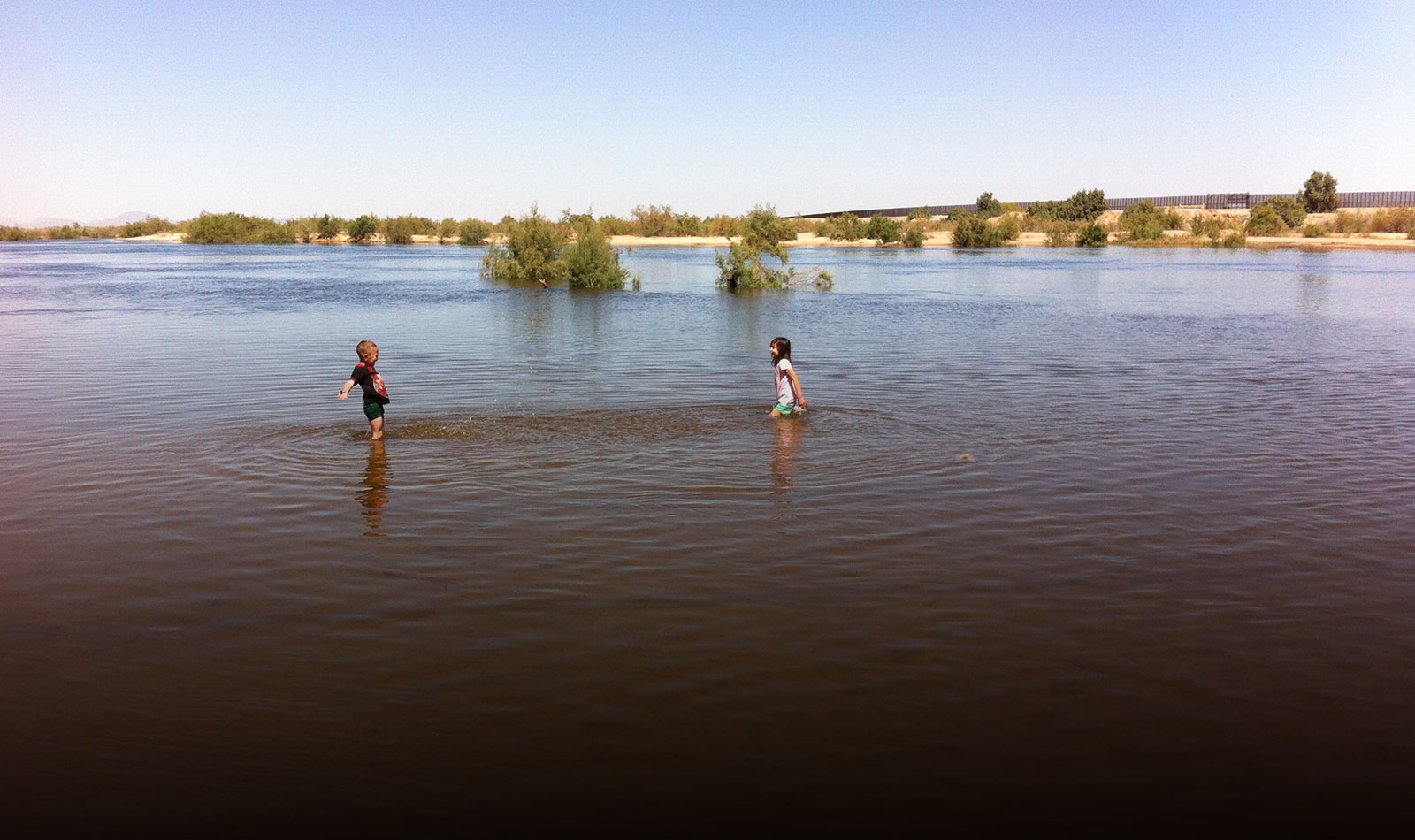Collaborative restoration work by Raise the River is essential to mitigate threats that led to this designation by American Rivers

The combined pressures of climate change and overallocation are threatening the vitality of the Colorado River, which was named today by American Rivers as the #1 most endangered river in the United States. The Colorado River is a critical water source for seven U.S. states, 30 Tribal Nations, and Mexico, and provides drinking water for 40 million people. The Colorado River received this designation for 2022 based on the river’s significance to people and wildlife, combined with the magnitude of the threat to the river and its neighboring communities.
Each year, American Rivers evaluates the health of the rivers in North America and highlights those most at risk. Their annual America’s Most Endangered Rivers report is the result of these efforts: a list of rivers at a crossroads, with the goal of bringing attention and awareness to the rivers where near-term key decisions can impact their fates.
The Colorado River basin is home to almost 400 bird species – many of which are currently classified as threatened or endangered – and the dramatic change has significantly impacted the region’s essential wildlife habitat. The Colorado River has not flowed regularly in its delta in Mexico for decades, turning the once vibrant river corridor into a desiccated and barren landscape.
The member organizations of Raise the River have been working together for twenty years to mitigate these deteriorating conditions. Since 2012, this coalition of non-governmental organizations has been collaborating with the U.S. and Mexico sections of the International Boundary and Water Commission (IBWC & CILA), CONAGUA, and the U.S. Bureau of Reclamation to mitigate these threats, and to revive the Colorado River Delta ecosystem through science-based conservation practices and strategic restoration work.
“Collaboration is the only path to avoid catastrophic water shortages for people and nature. We know how it works – ten years ago, the United States and Mexico modernized Colorado River management, collaborating to share the Colorado River’s water proportionately, while boosting cross-border investment in water conservation and beginning to restore the Colorado River in its delta.” — Jennifer Pitt, National Audubon Society’, Colorado River Project Director; Co-Chair, Raise the River Steering Committee
In partnership with federal agencies in the U.S. and Mexico, Raise the River is making substantial progress and positive outcomes in the Colorado River Delta region. Strategic deliveries of water and the planting of native trees in the region are components of their active management and maintenance of the river. To date, more than 1,100 acres (446 hectares) have been transformed into restored sites, comprised of cottonwood and willow groves, mesquite forests, marshlands, and open water.
The announcement of its status as the most endangered river of 2022 underscores the impact climate change is having on the Colorado River. It is unequivocally clear how important the binational commitments to water and the complementary restoration efforts are to the future health of the river. This ongoing cooperation between the U.S. and Mexico governments supports a more secure water future for the region.
“Our ‘Raise the River’ coalition continues to work closely with the governments of Mexico and the United States to achieve gains for water security in the region, while also demonstrating the Colorado River Delta’s tremendous resilience.” — Carlos de la Parra, Academic in border studies/water issues, member of the Minute 323 Oversight Group
The Colorado River is overallocated and overused, and climate change is further reducing the water supply. Raise the River is working with Mexicali Valley water users to increase the resilience and sustainability of agricultural water use in the region. A component of this effort is a series of workshops organized in conjunction with Mexico’s national water authority, CONAGUA, to share opportunities for more efficient water use and conservation with the local agricultural community. Also within the Mexicali Valley, Raise the River has an active community engagement program that offers environmental education and provides recreational opportunities in the newly restored green areas.
This is not the first year that the Colorado River has received this concerning designation; prior designations occurred in 1991, 1992, 2004, and 2013 (with portions of the river designated in 1997, 2010, 2014, and 2017). Based in Washington, D.C., American Rivers has been working since 1973 to support the protection of wild rivers and the restoration of damaged rivers for people and nature. www.AmericanRivers.org
“On the Colorado River and nationwide, the climate crisis is a water crisis. Just, equitable solutions for rivers and clean water are achievable and are essential to our health, safety, and future.” — Tom Kiernan, President and CEO, American Rivers
Despite the positive impacts of the work of Raise the River, much remains to be done. Climate change and water scarcity are only projected to intensify in the coming years, and both need to be addressed globally and regionally. Ecosystem restoration is the principal way Raise the River can combat these impacts. This requires continued collaboration, cooperation, participation, and support from each of the various stakeholders in this region. Raise the River is committed to continuing its work to bring water and life back to the Colorado River Delta, and in doing so, provide support – and hope – for this endangered river.
– 2022 Report from American Rivers; April 18, 2022: https://www.americanrivers.org/wp-content/uploads/2022/04/MER2022_Report_Final_04062022.pdf

